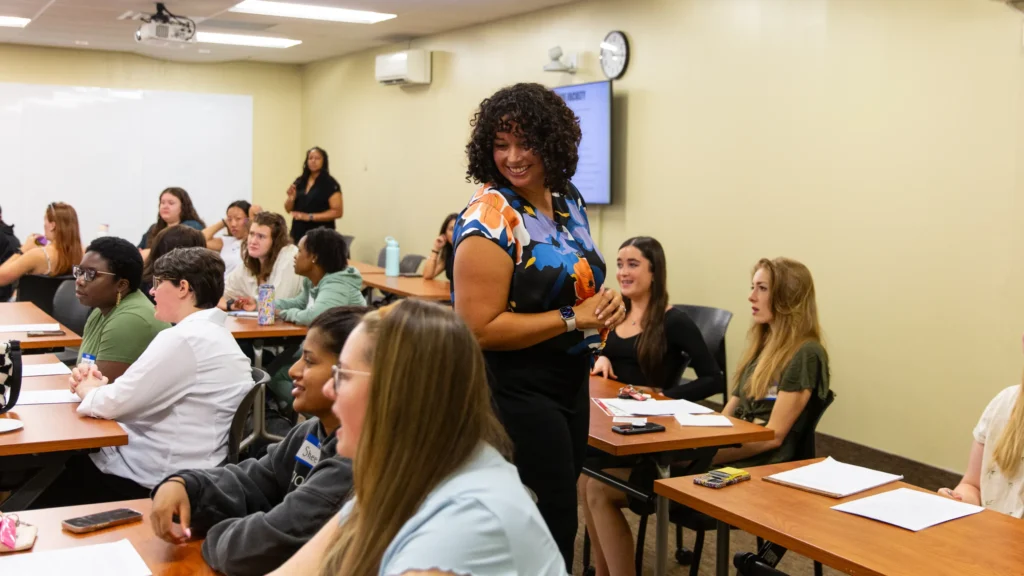Overview
- Degree Level
- Graduate
- Degrees Offered
- Master of Arts in Counseling
- Department
- Psychology Department
- school/college
- College of Arts and Sciences

Professional counselors serve as the front line of mental healthcare in many communities. Arcadia’s Graduate Program in Counseling offers a Master of Arts in Counseling (MAC) that prepares graduates to provide a broad range of mental health services across various settings, such as community agencies, private practices, hospitals, college counseling centers, and primary and secondary schools. Arcadia’s graduates are trained to provide direct counseling, consultation, assessment, and advocacy.
Arcadia University’s MAC program is accredited by the Masters in Psychology and Accreditation Council (MPCAC) has been accredited since 1999 and reaccredited for the period of June 2022 through June 2030. The MAC program fulfills the graduate educational requirements needed to become a Licensed Professional Counselor (LPC) in Pennsylvania. Arcadia’s training model integrates multicultural and evidence-based practices in counseling within a supportive and brave learning community to embody our program motto, Best Practices and Justice with Heart. To learn more about our curriculum, please see our Graduate Counseling Program Manual. We have not determined if the program meets the requirements for licensure in other states, but students who express interest in pursuing licensure outside of Pennsylvania will receive guidance in learning about any additional expectations not required by the PA State Board. Click HERE for information about licensure requirements across the United States.
To help students specialize their training and find their unique niche in the field, Arcadia’s Counseling program offers 7 concentrations: Mental Health Counseling, Trauma, Child and Family Therapy, Community Public Health, Mediation and Conflict Transformation, Autism, and Foundations in BCBA®. We also offer 2 dual degrees, in which students earn a MAC, as well as a Master of Public Health (MPH) or a Master of Arts in International Peace and Conflict Resolution (MA).
Required Course
In this introduction to the diagnostic system of the DSM-5, you will learn the most common disorders found in clinical settings. Gather information necessary to make DSM diagnoses in a culturally responsive way.
Elective Course
You will focus on theories, research, and cultural issues related to counseling American racial/ethnic and sexual minorities. Learn about general principles of cultural sensitivity, ethical issues related to counseling those who are different from themselves, how cultural heritage and social experience contribute to development, and how the culture and experience of the counselor may impact on the counseling relationship.
Required Course
Explore an introduction to major theoretical approaches to counseling and common counseling techniques with an emphasis on multicultural and evidence-based practices.
Required Course
In this course. you will focus on the advanced skills and techniques of counseling, with a specific focus on evidence-based and multicultural practices. Explore repeated practice/role-plays of specific techniques.
Required Course
Gain practical experience in a counseling setting designed to meet your career goals. Your internship will require a minimum of 600 hours over the academic year. Your study will include a weekly seminar for an entire academic year. Study case-based discussions of professional and ethical issues relevant to mental health. You will give written and oral presentations (e.g., a formal case study). Complete your internship during your final year of study. Your successful completion of this course is required before your degree or certificate is conferred.
